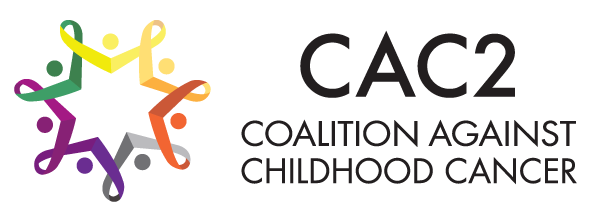The Alliance for Childhood Cancer sends its thanks for a fantastic Action Day on February 28. 348 advocates from 40 states participated and shared their stories in 222 meetings, asking for congressional support for important legislation and funding for childhood cancer. CAC2 members, Alliance members, and many others across the country had their voices heard. This year’s asks:
The Two Bills in the Package: Accelerating Kids’ Access to Care Act: Children with cancer often require specialized care from a specific provider or facility that may not be available in their home state. Some patients covered by Medicaid face burdensome, unnecessary delays in accessing time-sensitive care outside of their home state such as clinical trial enrollment. These bureaucratic delays can unfortunately cause a child’s condition to worsen. Give Kids a Chance Act of 2025: This bill would address some of the most pressing research needs of children and families with cancer, including extending vital research incentives, ensuring children with cancer continue to have access to the newest cures, and guaranteeing pediatric studies happen in a timely manner.
What to say to House Offices: Please Support both bills in the “Childhood Cancer Package
- Please Cosponsor H.R. 1509, the Accelerating Kids’ Access to Care Act, which reduces regulatory burdens and cuts bureaucratic red tape to allow children with complex medical needs greater access to out-of-state providers who can best meet their needs.
- Please Cosponsor H.R. 1262, the Give Kids a Chance Act of 2025, which will improve the lives of children with cancer and help unlock new cures and treatments for those affected by cancer.
- Please urge leadership to include this “Childhood Cancer Package” in the first available legislative vehicle.
What to say to Senate Offices: Please Support both bills in the “Childhood Cancer Package
- Please Cosponsor S. XXX, the Accelerating Kids’ Access to Care Act once it is introduced.
- Please Cosponsor the Give Kids a Chance Act once it is introduced by Senators Mullin and Bennet.
- Please urge leadership to include this “Childhood Cancer Package” in the first available legislative package.
- Stable federal funding is the lifeline for childhood cancer research and clinical trials.
- 80% of the 14,000 newly diagnosed children and adolescents each year rely on research institutions to provide life-saving care, with more than half enrolling in clinical trials.
- Any changes to NIH policy considered by the Administration or Congress must ensure children with cancer and their families aren’t harmed
- We urge Congress to once again fully fund two critical childhood cancer research programs – the Childhood Cancer STAR Act and the Childhood Cancer Data Initiative.
ASK 3. Preserve Medicaid Coverage for Children and Families Medicaid and the Children’s Health Insurance Program (CHIP) provide quality, affordable healthcare coverage for more than 37 million children, or roughly half of all children in the US. For children with cancer, Medicaid plays an especially critical role as a safety net. In many states, a child is eligible for Medicaid and CHIP coverage upon receiving a childhood cancer diagnosis, providing necessary and timely access to quality, uninterrupted care. Any changes to Medicaid’s financing structure, such as block grants and per capita caps, or other policies that shift costs to states, such as cuts to the federal medical assistance percentage (FMAP), would impact not only childhood cancer patients and families but also the entire pediatric healthcare system overall. Further, cuts to eligibility and benefits and the addition of any barriers to coverage, such as work requirements, would severely harm children with cancer and their families.
- Medicaid plays an especially critical role as a safety net for childhood cancer patients, covering more than half of children in the US, including 1 in 3 newly diagnosed children
- We urge members of Congress to protect children with cancer and their families and prevent any changes to the Medicaid program that cut needed funding, restrict access, or reduce the quality of services.


